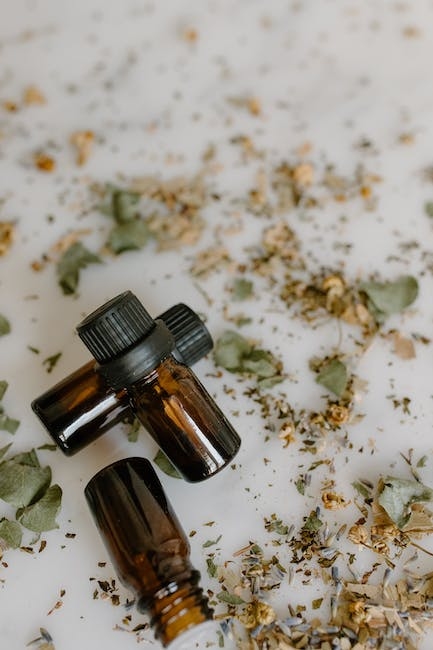Understanding UTIs and the Benefits of Peppermint Tea
Welcome to our blog for tea lovers! In this article, we will explore a fascinating topic that may be of interest to anyone who has experienced the discomfort of a urinary tract infection (UTI). Specifically, we will be discussing the benefits of peppermint tea for UTIs and how this refreshing beverage can potentially offer relief.
UTIs are a common ailment, with millions of people worldwide experiencing them each year. They occur when bacteria enter the urinary system, causing inflammation and infection. The symptoms of a UTI can be highly unpleasant, including a frequent urge to urinate, a burning sensation during urination, cloudy or bloody urine, and even abdominal pain.
Now, you might be wondering how peppermint tea fits into the picture. Peppermint tea is a natural herbal infusion made from dried peppermint leaves. It has been used for centuries for its numerous health benefits, including its soothing properties on the digestive system, its ability to relieve headaches, and its refreshing taste.
But what does peppermint tea have to do with UTIs, you ask? Well, it turns out that peppermint tea may have unique properties that can help alleviate the symptoms of UTIs and even aid in preventing them altogether.
So, let’s dive into the details of how peppermint tea can be a fantastic addition to your UTI prevention plan. We’ll discuss how it works and share a simple recipe for making your own cup of soothing peppermint tea.
But first, it’s essential to understand the specific benefits of peppermint tea and how it can potentially help with UTIs. So, let’s move on to the next section.
What is Peppermint Tea?
Before we delve into the potential benefits of peppermint tea for UTIs, let’s take a moment to understand what this delightful tea is all about.
Peppermint tea is an herbal infusion made from the leaves of the peppermint plant (Mentha piperita). This perennial herb is native to Europe and has a long history of use in traditional medicine for its refreshing taste and therapeutic properties.
The leaves of the peppermint plant are known for their high concentration of essential oils, including menthol, menthone, and menthyl acetate, which are responsible for the distinctive aroma and flavor of peppermint. These oils contribute to the cooling and soothing effects that peppermint tea is famous for.
When brewed, peppermint tea offers a vibrant and invigorating taste that many people find enjoyable on its own or with a touch of honey or lemon. It has a refreshing scent that can uplift your mood and help you relax, making it a perfect beverage for any time of the day.
Aside from its delightful taste and aroma, peppermint tea has gained popularity thanks to its potential health benefits. It has been used for centuries in various cultures to treat digestive issues, alleviate headaches, and even soothe menstrual cramps.
Now that we have a good understanding of what peppermint tea is, let’s explore how it can potentially help with UTIs in the next section.
How does Peppermint Tea help with UTIs?
When it comes to UTIs, peppermint tea may offer several potential benefits that can help alleviate symptoms and support overall urinary tract health.
Firstly, peppermint tea has natural antimicrobial properties, which means it may help inhibit the growth of bacteria in the urinary system. This can be particularly beneficial in UTIs, where the infection is caused by bacteria entering the urethra and spreading to the bladder.
The antimicrobial properties of peppermint tea are attributed to its essential oil, specifically the compound menthol. Menthol has been shown to have antimicrobial effects against a variety of bacteria, including those commonly associated with UTIs, such as Escherichia coli (E. coli) and Staphylococcus aureus.
In addition to its antimicrobial effects, peppermint tea may also have anti-inflammatory properties. UTIs often result in inflammation in the urinary tract, leading to discomfort and pain. The anti-inflammatory compounds in peppermint tea, such as rosmarinic acid, may help reduce inflammation and provide relief from these symptoms.
Furthermore, peppermint tea is known for its soothing properties. It can have a calming effect on the muscles of the urinary tract, which may help ease spasms and reduce the urge to urinate frequently, a common symptom of UTIs.

It is important to note that while peppermint tea may offer potential benefits for UTIs, it is not a substitute for medical treatment. If you suspect you have a UTI or are experiencing severe symptoms, it is essential to consult with a healthcare professional for proper diagnosis and treatment.
Now that we understand how peppermint tea can potentially help with UTIs, let’s move on to the next section to learn how to prepare this soothing beverage for UTI relief.
How to Make Peppermint Tea for UTI Relief
Making peppermint tea for UTI relief is a straightforward process that can be done easily in the comfort of your own home. Here’s a simple recipe to guide you:
- Start by gathering all the ingredients you’ll need:
- 1 tablespoon of dried peppermint leaves
- 2 cups of water
- Honey or lemon (optional, for added flavor)
- Bring the water to a boil in a pot or kettle.
- Once the water has reached a rolling boil, remove it from the heat.
- Add the dried peppermint leaves to the hot water.
- Allow the peppermint leaves to steep in the water for about 5-10 minutes. The longer you steep, the stronger the flavor will be.
- After the steeping time, strain the tea to remove the peppermint leaves.
- You can sweeten the tea with honey or add a squeeze of lemon juice for extra flavor, if desired.
- Pour the freshly brewed peppermint tea into a cup and enjoy it while it’s still warm.
It’s important to note that the dosage and frequency of peppermint tea consumption may vary from person to person. It’s generally recommended to start with one cup of peppermint tea per day and see how your body reacts to it. If you tolerate it well, you can gradually increase the amount as needed.
Also, keep in mind that while peppermint tea can offer potential relief for UTIs, it is not a substitute for medical treatment. If you have a severe UTI or if your symptoms persist or worsen, it is crucial to seek medical advice.
Now that you know how to prepare peppermint tea for UTI relief, let’s take a moment to discuss some precautions and side effects associated with its consumption.
Precautions and Side Effects of Peppermint Tea for UTIs
While peppermint tea is generally considered safe for consumption, it’s essential to be aware of certain precautions and potential side effects.
Firstly, if you have gastroesophageal reflux disease (GERD) or a history of acid reflux, it’s important to exercise caution when consuming peppermint tea. Peppermint can relax the lower esophageal sphincter (LES), which can lead to acid reflux symptoms in some individuals. If you experience heartburn or worsening of acid reflux symptoms after drinking peppermint tea, it may be best to avoid it.
In addition, peppermint tea may interact with certain medications. If you are taking medications such as antacids, anticoagulants, or cyclosporine, it is advisable to consult with your healthcare provider before adding peppermint tea to your routine, as it may interfere with the effectiveness of these medications.
Some individuals may also be allergic to peppermint. If you have a known allergy to mint or menthol, it’s best to avoid peppermint tea to prevent any adverse reactions.
Lastly, excessive consumption of peppermint tea may lead to some mild side effects. These can include nausea, vomiting, diarrhea, or allergic reactions in sensitive individuals. It’s essential to listen to your body and moderate your intake to avoid any discomfort.
As always, it’s a good practice to start with small amounts of peppermint tea and observe how your body reacts. If you experience any adverse effects or if your symptoms worsen, it’s best to discontinue use and consult with a healthcare professional.
Now that we’ve covered the precautions and potential side effects, let’s summarize what we’ve learned and discuss how you can incorporate peppermint tea into your UTI prevention plan in the concluding section.
Conclusion: Incorporating Peppermint Tea into Your UTI Prevention Plan
Incorporating peppermint tea into your UTI prevention plan can be a simple and enjoyable way to potentially alleviate symptoms and support urinary tract health. While research on the direct effects of peppermint tea on UTIs is limited, its antimicrobial, anti-inflammatory, and soothing properties make it a promising addition to your routine.
When preparing peppermint tea for UTI relief, remember to use high-quality dried peppermint leaves and steep them for an adequate amount of time to extract the beneficial compounds. You can enjoy your cup of peppermint tea as is or add a touch of honey or lemon for added flavor.
However, it’s important to note that peppermint tea is not a substitute for medical treatment. While it may provide relief for mild UTI symptoms, it’s crucial to consult with a healthcare professional if you suspect you have a UTI or if your symptoms persist or worsen.
Additionally, it’s important to be aware of any potential precautions and side effects associated with peppermint tea. If you have a history of GERD, take certain medications, or have known allergies to peppermint, it’s advisable to exercise caution or avoid peppermint tea altogether.
To incorporate peppermint tea into your UTI prevention plan, you can consider enjoying a cup of peppermint tea as part of your daily routine. However, it’s essential to maintain good urinary tract health through other practices as well. This includes staying hydrated, practicing good hygiene, urinating regularly, and avoiding irritants such as caffeine and alcohol.
Remember, prevention is key when it comes to UTIs. By adopting a holistic approach and incorporating peppermint tea as a potential supportive tool, you can take steps toward maintaining a healthy urinary tract.
So, why not add a soothing cup of peppermint tea to your day and nurture your well-being? Cheers to good health and a happy urinary system!


Leave a Reply